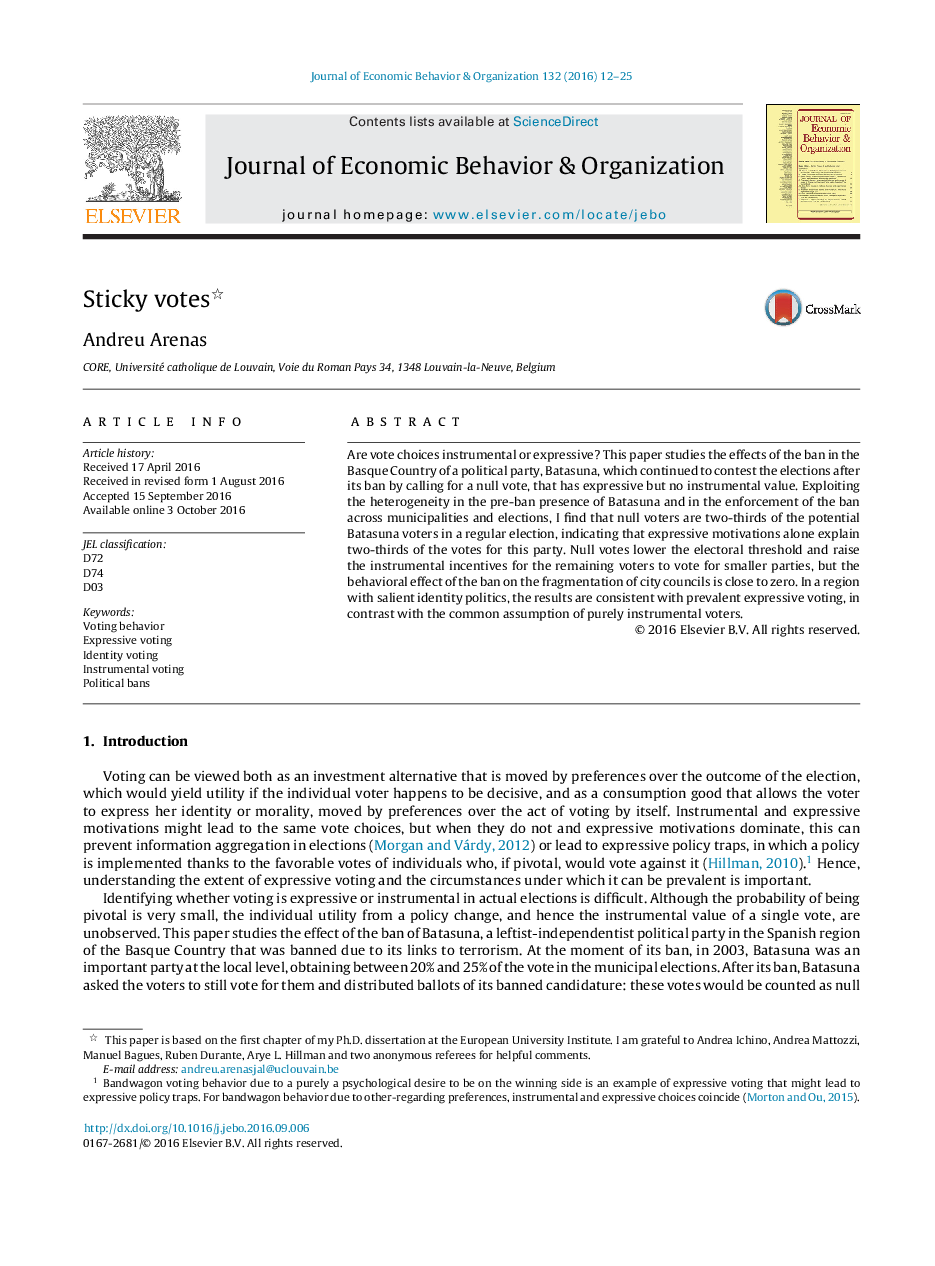| Article ID | Journal | Published Year | Pages | File Type |
|---|---|---|---|---|
| 5034707 | Journal of Economic Behavior & Organization | 2016 | 14 Pages |
â¢I study the ban of a political party, which after its ban calls for a null vote.â¢Null votes have expressive but no instrumental value.â¢Two-thirds of the potential voters for the banned party cast a null vote.â¢Null votes lower the electoral threshold but the remaining voters do not react.â¢The results are consistent with prevalent expressive voting.
Are vote choices instrumental or expressive? This paper studies the effects of the ban in the Basque Country of a political party, Batasuna, which continued to contest the elections after its ban by calling for a null vote, that has expressive but no instrumental value. Exploiting the heterogeneity in the pre-ban presence of Batasuna and in the enforcement of the ban across municipalities and elections, I find that null voters are two-thirds of the potential Batasuna voters in a regular election, indicating that expressive motivations alone explain two-thirds of the votes for this party. Null votes lower the electoral threshold and raise the instrumental incentives for the remaining voters to vote for smaller parties, but the behavioral effect of the ban on the fragmentation of city councils is close to zero. In a region with salient identity politics, the results are consistent with prevalent expressive voting, in contrast with the common assumption of purely instrumental voters.
